 EDITOR'S PICK
EDITOR'S PICK
The Lab Where GM Is Cooking Up New EV Batteries To Beat China
21 Oct 2025 | Synopsis
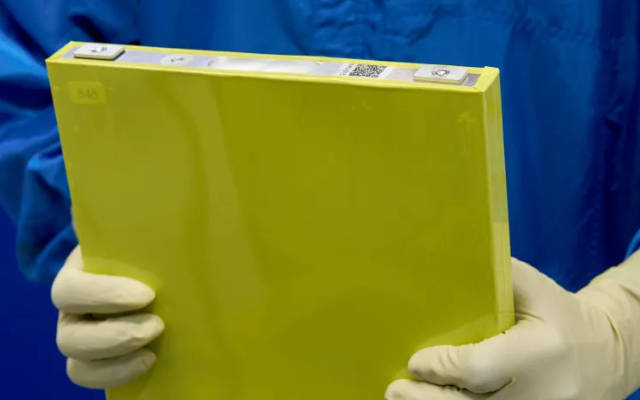 GM is developing lithium metal batteries (LMR) at its new EV battery lab to boost range and cut costs. The goal is to surpass current lithium-ion tech by using solid-state designs that offer higher energy density and faster charging. GM aims to integrate LMR into future Ultium-based vehicles, including affordable EVs like the next-gen Bolt. The lab accelerates testing and innovation to meet 2027 production targets.
GM is developing lithium metal batteries (LMR) at its new EV battery lab to boost range and cut costs. The goal is to surpass current lithium-ion tech by using solid-state designs that offer higher energy density and faster charging. GM aims to integrate LMR into future Ultium-based vehicles, including affordable EVs like the next-gen Bolt. The lab accelerates testing and innovation to meet 2027 production targets.GM CEO: Automaker Planning Entire Affordable EV Range
21 Oct 2025 | Synopsis
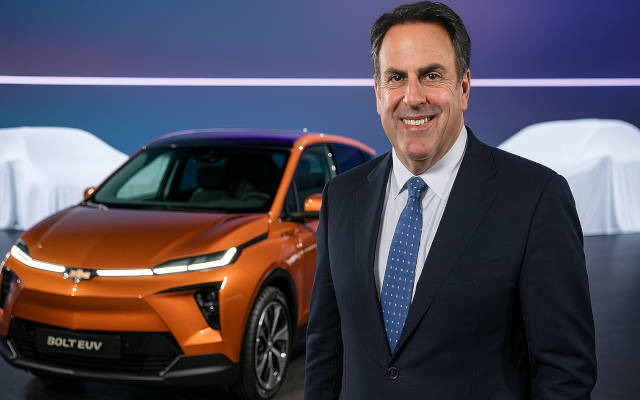 GM President Mark Reuss confirmed a new family of affordable Chevrolet EVs launching by 2027, starting with a redesigned Bolt. Built on GM’s Ultium platform, the lineup will offer improved range, lower costs, and broader appeal. Reuss emphasized GM's commitment to mainstream electrification, with multiple models planned to follow the Bolt. The goal: make EVs accessible without sacrificing performance or utility.
GM President Mark Reuss confirmed a new family of affordable Chevrolet EVs launching by 2027, starting with a redesigned Bolt. Built on GM’s Ultium platform, the lineup will offer improved range, lower costs, and broader appeal. Reuss emphasized GM's commitment to mainstream electrification, with multiple models planned to follow the Bolt. The goal: make EVs accessible without sacrificing performance or utility.Norway's Ferry Operator Norled Could Have Saved Money & Staff by Skipping Hydrogen
21 Oct 2025 | Synopsis
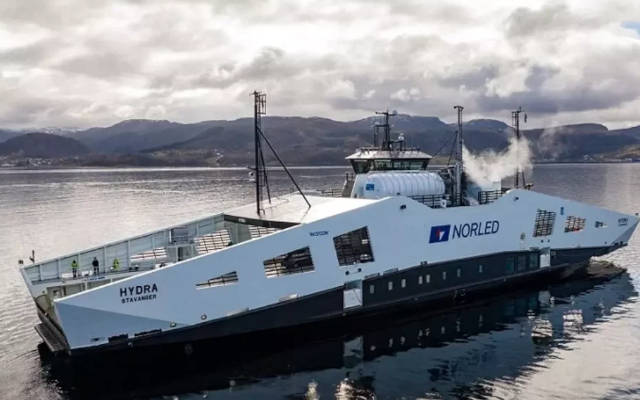 Norway's ferry operator Norled lost €85M after investing in hydrogen ferries like MF Hydra, which cost more to build and operate than battery-electric or diesel alternatives. Hydrogen fuel is expensive, inefficient, and emits more CO2 than expected - double that of diesel and 40x more than electric. Battery ferries like MF Nesvik prove cheaper, cleaner, and more practical. Critics say Norled's hydrogen gamble cost jobs and failed to deliver strategic value.
Norway's ferry operator Norled lost €85M after investing in hydrogen ferries like MF Hydra, which cost more to build and operate than battery-electric or diesel alternatives. Hydrogen fuel is expensive, inefficient, and emits more CO2 than expected - double that of diesel and 40x more than electric. Battery ferries like MF Nesvik prove cheaper, cleaner, and more practical. Critics say Norled's hydrogen gamble cost jobs and failed to deliver strategic value.Archer Beats Out Joby for Lilium eVTOL Patents
20 Oct 2025 | Synopsis
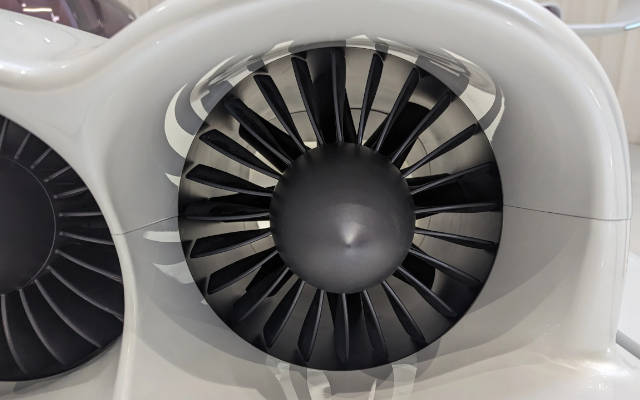 US-based Archer Aviation acquired 300 patents from bankrupt German eVTOL firm Lilium for $21M, beating Joby, its competitor. The deal includes ducted fan tech, aircraft design, and battery systems. Archer plans to expand beyond air taxis into cargo, defense, and sport aviation. Lilium's collapse reflects broader industry consolidation, as well-funded players absorb assets from struggling startups. Lilium spent more than $1.5 billion developing these technologies.
US-based Archer Aviation acquired 300 patents from bankrupt German eVTOL firm Lilium for $21M, beating Joby, its competitor. The deal includes ducted fan tech, aircraft design, and battery systems. Archer plans to expand beyond air taxis into cargo, defense, and sport aviation. Lilium's collapse reflects broader industry consolidation, as well-funded players absorb assets from struggling startups. Lilium spent more than $1.5 billion developing these technologies.Rebooting the 2027 Chevy Bolt Was More Complex Than You'd Think
20 Oct 2025 | Synopsis
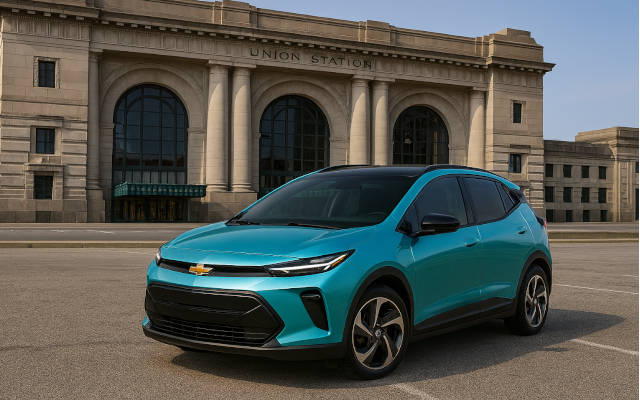 The 2027 Chevy Bolt retains its familiar look but features a nearly complete electrical overhaul. Built on GM's Global B architecture, it supports OTA updates and advanced driver aids. It uses LFP batteries for ~255 miles of range and 150kW fast charging (10–80% in 26 minutes), plus Tesla's NACS port. Production shifts from Michigan to Kansas, reusing body tooling to cut costs. Target price is under $30K, with deliveries starting January 2027.
The 2027 Chevy Bolt retains its familiar look but features a nearly complete electrical overhaul. Built on GM's Global B architecture, it supports OTA updates and advanced driver aids. It uses LFP batteries for ~255 miles of range and 150kW fast charging (10–80% in 26 minutes), plus Tesla's NACS port. Production shifts from Michigan to Kansas, reusing body tooling to cut costs. Target price is under $30K, with deliveries starting January 2027.
 EVWorld Exclusive
EVWorld Exclusive
Why EVs Need Psychology More Than Horsepower
30 Oct 2025 |  Rory Sutherland argues that behavioral science is key to EV adoption. In the Everything Electric podcast with Imogen Bhogal, he explains that range anxiety is psychological, not technical, and that emotional reassurance matters more than battery size. He advocates for longer test drives, intuitive design, and incentives that reflect real human behavior. The interview challenges engineering-first thinking and urges empathy-driven policy to accelerate the EV transition.
Rory Sutherland argues that behavioral science is key to EV adoption. In the Everything Electric podcast with Imogen Bhogal, he explains that range anxiety is psychological, not technical, and that emotional reassurance matters more than battery size. He advocates for longer test drives, intuitive design, and incentives that reflect real human behavior. The interview challenges engineering-first thinking and urges empathy-driven policy to accelerate the EV transition.
Signal Boosting the White House's Anti-Wind Campaign
30 Oct 2025 |  Douglas McIntyre's video parrots RFK Jr.'s health claims about wind farms without evidence, echoing Trump-era attacks on renewables. By amplifying fringe concerns and ignoring scientific consensus, the video promotes misinformation that undermines climate policy and public trust. Wind energy is not the enemy - ignorance is.
Douglas McIntyre's video parrots RFK Jr.'s health claims about wind farms without evidence, echoing Trump-era attacks on renewables. By amplifying fringe concerns and ignoring scientific consensus, the video promotes misinformation that undermines climate policy and public trust. Wind energy is not the enemy - ignorance is.
Urban Connect: Modular Mobility Hubs for Transit-Rich Cities
29 Oct 2025 |  Urban Connect is a modular micromobility hub concept design-ed for dense, transit-rich cities, not unlike that designed by EV World founder and editor-in-chief in 2018. With secure docking, solar charging, and smart tech integration, these hubs support shared and private e-vehicles while boosting public transit use. Deployment costs range from $25K to $75K, with benefits including reduced emissions, improved public health, and expanded access.
Urban Connect is a modular micromobility hub concept design-ed for dense, transit-rich cities, not unlike that designed by EV World founder and editor-in-chief in 2018. With secure docking, solar charging, and smart tech integration, these hubs support shared and private e-vehicles while boosting public transit use. Deployment costs range from $25K to $75K, with benefits including reduced emissions, improved public health, and expanded access.
A Great Lakes Homecoming: Voltaic Marine Trades Silicon Forest for Michigan's Manufacturing Heartbeat
29 Oct 2025 |  Voltaic Marine, an electric boat startup from Oregon, is relocating to Michigan after a $3M pre-seed round. Drawn by state grants and Detroit's manufacturing strength, the company will begin commercial production of its AEW24 wakeboat in 2026 with Detroit Manufacturing Systems and Kinetyc. The move reflects a broader trend: clean-tech firms prioritizing scalable infrastructure and policy support over coastal startup hubs.
Voltaic Marine, an electric boat startup from Oregon, is relocating to Michigan after a $3M pre-seed round. Drawn by state grants and Detroit's manufacturing strength, the company will begin commercial production of its AEW24 wakeboat in 2026 with Detroit Manufacturing Systems and Kinetyc. The move reflects a broader trend: clean-tech firms prioritizing scalable infrastructure and policy support over coastal startup hubs.
A Different Kind of Crop Duster
29 Oct 2025 |  Pyka designs and manufactures autonomous electric aircraft for agricultural and cargo applications. Their Pelican 2 crop sprayer utilizes hot-swappable batteries and advanced sensors for efficient and precise spraying. Having received the first FAA approval for a large autonomous electric aircraft, Pyka has introduced the Pelican Cargo variant and develops its core technology internally.
Pyka designs and manufactures autonomous electric aircraft for agricultural and cargo applications. Their Pelican 2 crop sprayer utilizes hot-swappable batteries and advanced sensors for efficient and precise spraying. Having received the first FAA approval for a large autonomous electric aircraft, Pyka has introduced the Pelican Cargo variant and develops its core technology internally.
 30 Oct 2025 14:16:36 UTC |
RECENT PODCASTS
Jeremy McCool with HEVO about Wireless Charging Infrastructure
SEARCH RSSTREAM
 66 New Postings In Past 24 Hours
66 New Postings In Past 24 Hours
Category:mobility
Region:AsiaPacific
Date:30 Oct 2025
Category:policy
Region:NoAmerica
Date:30 Oct 2025
Category:mobility
Region:Europe
Date:30 Oct 2025
Category:mobility
Region:AsiaPacific
Date:30 Oct 2025
Category:autonomy
Region:NoAmerica
Date:30 Oct 2025
Category:mobility
Region:AsiaPacific
Date:30 Oct 2025
Category:mobility
Region:Europe
Date:30 Oct 2025
Category:mobility
Region:NoAmerica
Date:30 Oct 2025
Category:review
Region:NoAmerica
Date:30 Oct 2025
Category:mobility
Region:Global
Date:30 Oct 2025
Category:environment
Region:Global
Date:30 Oct 2025
Category:mobility
Region:AsiaPacific
Date:30 Oct 2025
Category:finance
Region:NoAmerica
Date:30 Oct 2025
Category:mobility
Region:AsiaPacific
Date:30 Oct 2025
Category:mobility
Region:Europe
Date:30 Oct 2025
Category:mobility
Region:Europe
Date:30 Oct 2025
Category:energy
Region:Global
Date:30 Oct 2025
Category:mobility
Region:AsiaPacific
Date:30 Oct 2025
Category:mobility
Region:AsiaPacific
Date:30 Oct 2025
Category:mobility
Region:AsiaPacific
Date:29 Oct 2025